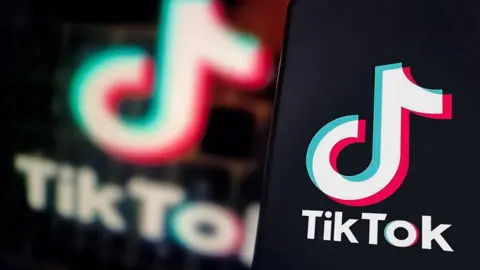In a recent announcement, President Donald Trump has confirmed an extension of the deadline for the sale of TikTok in the United States. The new deadline sets a 90-day interval, pushing the original timeline that required a sale by the US-based subsidiary of the popular video-sharing app, TikTok. This decision comes in the wake of considerable scrutiny and legislative action taken by US lawmakers, who raised suspicions regarding possible national security risks associated with the app’s Chinese parent company, ByteDance.
Key concerns have revolved around the potential for the Chinese government to access sensitive data about US users. These fears were exacerbated by new laws passed last year, mandating that TikTok must either be sold or face a ban in the US, effectively creating pressure on the company to expedite negotiations for its sale. However, TikTok has consistently denied any wrongdoing, asserting that they prioritize user privacy and safety.
Trump’s recent executive order represents the third postponement regarding the enforcement of this law, highlighting his interplay with the app during his presidency. While campaigning, he pledged his commitment to saving TikTok from a potential shutdown. The executive order underscores that TikTok’s operations will continue uninterrupted while discussions surrounding its future proceed.
In a statement following the announcement, TikTok expressed gratitude towards President Trump, acknowledging his leadership in allowing the platform to remain accessible to its 170 million users across the United States. The company has actively maintained communication with the administration, indicated by their mention of ongoing collaboration with Vice President Vance’s Office as they navigate this challenging landscape.
The deadline for negotiations is now set for September 17, as reiterated by Trump in a post on his social media platform, Truth Social. This extension could be seen as a welcomed opportunity for ByteDance to find a suitable US buyer, a process that has been fraught with complexity. Market analysts speculate that any sale must gain approval from Chinese authorities, potentially complicating matters further.
The legal pressures surrounding TikTok stem not only from fears of foreign surveillance but also broader concerns regarding data privacy in a digital age increasingly aware of the implications of data misuse. Lawmakers in the United States have emphasized a need for the app to be sold to a domestic company to mitigate these risks and ensure the security of American citizens’ information.
The anticipation of a further extension was not entirely unexpected, especially considering the protracted negotiations that have characterized this process since its inception. White House press secretary Karoline Leavitt, addressing reporters, noted that the additional 90 days would “ensure this deal is closed so that the American people can continue to use TikTok with the assurance that their data is safe and secure.”
This evolving situation emphasizes the intense scrutiny that social media platforms face in the contemporary geopolitical context and demonstrates the challenges of navigating international business agreements in an era marked by growing nationalistic tendencies. As developments continue to unfold, stakeholders from TikTok to the US government will have to grapple with a multitude of factors—including regulatory approvals, public sentiment, and international relations—as they chart a path forward for one of the world’s most popular social media applications.
In summary, the unfolding scenario of TikTok’s potential sale reflects broader tensions between US authorities and foreign technology firms, raising pivotal questions about user data security and corporate ownership in the global digital landscape. As negotiations advance, the attention of both users and lawmakers remains fixed on the app’s future, encapsulating a crucial juncture in the intersection of technology, regulation, and international relations.



